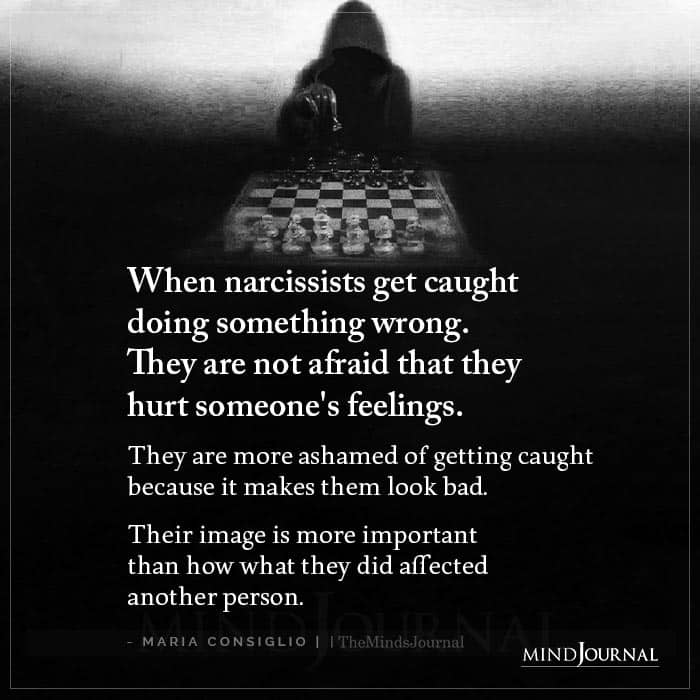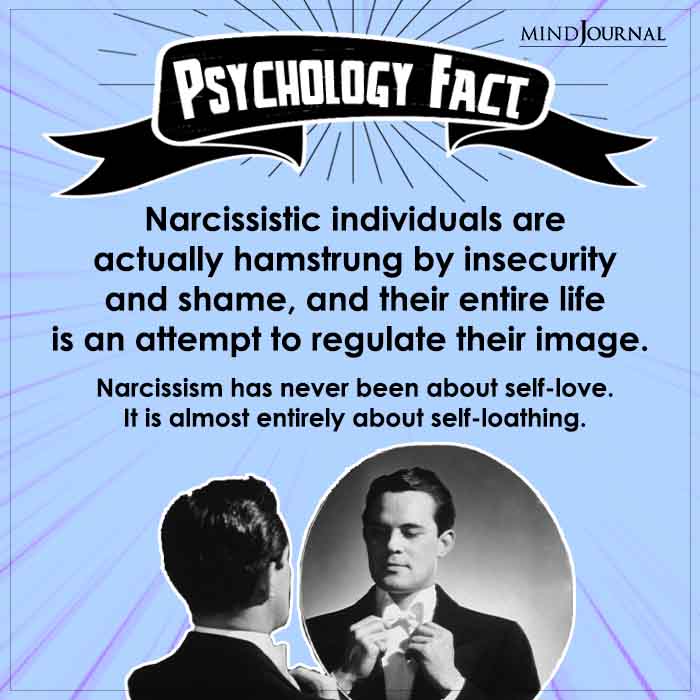Do you know why a collapsed narcissist can be more harmful than the one who is in full control of their faculties? Popular culture portrays narcissists as cunning, devious, and malevolent beings with a pumped-up ego.
They are sure of themselves, proud as a peacock, and nothing can make them doubt themselves, let alone make them collapse.
If you ever had the misfortune of dealing with a true narcissist at some point in your life, all those above statements will ring true. Then what is the hullabaloo over the collapsed narcissist? Read on to find all the answers!
What Is A Collapsed Narcissist?
A collapsed narcissist is a person who suffers from Narcissistic Personality Disorder (NPD) and who is experiencing a debilitating emotional reaction due to certain external stressors.
So, what on earth can possibly make a full-blown narcissist crumble and can bring them to their knees? It is their fear of getting exposed as flawed human beings!
Narcissistic personalities have a very fragile ego and a shaky sense of self that they camouflage with their arrogance and grandiosity. But deep down they have poor self-esteem that makes them feel inadequate.
This is the reason narcissists, especially Grandiose Narcissists, look for validation or Narcissistic Supply from other people in order to feel confident, secure, and superior. They need someone who would look up to them, cater to their every need, and take their every abuse, but will never question their authority. In simple words, a narcissist’s victim is simply there to boost the narcissistic ego.
This very dependence on external validation, coupled with a fixation on an impressive public image, turns a confident narcissist into a collapsed narcissist. When a narcissistic personality anticipates or faces humiliation, failure, or any kind of a negative setback, they feel that their cover is blown and the whole world now can see them as worthless and insignificant.
This anxiety triggers a shame-based depressive episode known as Narcissistic Injury and their facade of confidence and pompous arrogance comes down like a house of cards. Then the apparent invincible narcissist becomes a collapsed narcissist who is fearful of the future and one who cannot function in the present.
Read: Are You A Source Of Narcissistic Supply?
Causes Of Narcissistic Collapse:
A narcissist can become a collapsed narcissist if they feel threatened due to anything ranging from a minor inconvenience to a severe crisis that challenges the way they perceive themselves and others.
- When their narcissistic supply of admiration or attention gets cut off abruptly
- Their devoted partner leaves them
- They fail to reach a life target like buying a car or bagging a raise at work
- Their crush takes an awful lot of time to text them back
- They lose their presidential post in the PTA group
- Adverse Childhood Experience or trauma
8 Signs Of Narcissistic Collapse

These collapsed narcissist signs will help you understand collapsed narcissist behavior, identify a narcissist in a collapse, and save yourself from potential emotional and physical harm inflicted by a collapsed narcissist.
1. Narcissistic Rage
When a narcissist feels that they have lost everything, often they lash out at their victims. They feel so overwhelmed by their perceived loss of power that they frequently burst out in hot blind rage, resulting in hurtful behavior, both in words and actions.
2. Withdrawal
Stonewalling is another sign of a collapsed narcissist. They might completely block out their victims and avoid any conversation with them. More common with Vulnerable or Covert Narcissists, the withdrawal symptoms include passive-aggressive behavior with the sole purpose of getting the much-desired attention and validation.
3. Impulsive Reactions
Narcissists by nature are impulsive and quick in decision making. They care only about the short-term gains and try to appear confident to others by taking fast decisions. During a psychotic meltdown, a collapsed narcissist will exhibit accentuated impulsivity with kee-jerk reactions in a desperate bid to reclaim their authority over a situation or a person.
4. Recklessness
Anger and impulsivity can make a collapsed narcissist engage in reckless and risky behavior. They can very easily get themselves into trouble with the law or endanger their physical safety.
As narcissistic personalities are devoid of empathy, they have little consideration for how their actions affect themselves and others.
Read: 22 Stages Of Relationship Between An Empath And A Narcissist

5. Complaining
Generally, a narcissist lives in their own fantasy world where everything revolves around them, and as a collapsed narcissist, their narrative can get so twisted that they might feel everyone is out to get them or that everything goes against them.
This attitude will compel the collapsed narcissist to complain incessantly about every little inconvenience they face in their daily lives.

6. Playing The Blame Game
When a collapsed narcissist loses control over their victim, they resort to many manipulation techniques including playing the blame game. They try to flip the narration and make others feel that they are the reason why things are not going the way they should.
Sometimes, the rage of a collapsed narcissist can also make them lose their grip on reality and induce a genuine belief that others are responsible for the pain they are suffering right now. This way a narcissist avoids taking accountability and processing their emotions.
7. Gaslighting
Hurtful behavior is a common sign of a collapsed narcissist or for that matter every Grandiose Narcissist. But isn’t that counterintuitive? After all, a narcissist aims for admiration and respect from their victims. So, why would a collapsed narcissist do so many hurtful malpractices?
Because they would follow up their abuse with gaslighting. They would make their victims believe that the abuse didn’t even happen, that it’s all in their imagination, and would do little acts of love to entice them back again.
8. Complete Breakdown
Finally comes a phase where the collapsed narcissist can no longer keep up their power game and manipulation tactics. They get flooded with depression, and anxiety, and cease to function completely.
Read: Psychopathy Narcissism And Machiavellianism

A Few Examples Of Narcissistic Collapse
If you are wondering how to spot a narcissistic collapse, then watch out for these signs:
- Suicidal ideation and/or suicide attempt
- Refusal to leave home or go to work
- Compulsive behavior such as drinking, gambling, and substance abuse
- Breaking up with their partner without offering an explanation
- Being vindictive or seeking revenge
- Making threats of harming others or themselves
How To Protect Yourself From A Collapsed Narcissist?
If you’re on the receiving end of any of the above-mentioned behaviors from a narcissist in the collapse, adopt any of the following measures to safeguard yourself:
- Share the details about your situation with a trusted friend or family member
- Safely get away from the collapsed narcissist
- Do not trigger them or get confrontational with them
- Try to keep documented proof of their maltreatment toward you in the form of images, videos, etc.
- Get help from the police if you are in any kind of immediate danger
- Encourage them to seek mental health care
Healing Is Possible
What one needs to keep in mind is that NPD is not a choice and a collapsed narcissist is not genetically wired to comprehend the effects of their behavior. A collapsed narcissist is in a lot of pain and internal turmoil that makes them act out and hurt themselves as well as the ones around them.
If someone you know is showing signs of a collapsed narcissist, encourage them to seek mental health treatment.
That being said, if you are involved with a collapsed narcissist in any capacity, you have to prioritize your safety first. A collapsed narcissist can be potentially dangerous. Make sure not to trigger them and if required distance yourself or get the authorities involved.
Healing a narcissistic injury is always possible through therapy and other medical interventions but it will require commitment and cooperation from the collapsed narcissist.
And if you are someone with a Narcissistic Personality Disorder and want to know how to avoid narcissistic collapse, then we would suggest you seek help from a licensed therapist or a mental health expert without any delay.
Frequently Asked Questions –
What is the narcissistic rage?
When someone with narcissistic personality disorder cannot keep up their pretense of confidence and grandiosity, they get enraged often as a sign of their psychotic breakdown.
What is narcissistic mortification?
It roughly translates to death by embarrassment. When a narcissist anticipates humiliation or failure of some sort, it sets a negative emotion in them and they lose their sense of self.
How long does narcissistic collapse last?
It’s not a permanent occurrence but only a mental health expert would be able to say how long a narcissistic collapse would last for a particular patient.











Leave a Reply